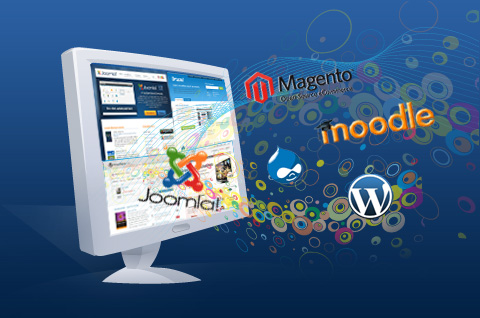If you’re thinking of upgrading your website, or you’re already in the process of hiring a designer, you’ve probably come across the CMS acronym on your way around the internet.
CMS stands for Content Management System, and means exactly what it describes: A way of being able to organise and publish content onto your website.
Why Do I Need One Of Those?
If you have a completely static website that contains three or four pages that describe what you do, then you probably don’t need a CMS at all. However, in a time where fresh content is an absolute must for improving your position in a search engine, a CMS is a basic requirement rather than a luxury.
You really should be publishing new articles and blog posts on your website on a weekly basis, and if you have a business like a restaurant or a bistro, you’re going to want to change the “menu” and “specials” sections of your site regularly. Hiring a web designer every time you need to make a change isn’t practical, so you’re going to need to be able to make changes yourself. That’s where a CMS comes in.
How Does It Work?
You probably don’t have any experience of writing code or designing a website. That’s the beauty of a good CMS, you’ll be able to log in to the site and be presented with an easy to use control panel that allows you to modify the text on different sections of the site, as well as add new blog posts and portfolio sections as your company evolves.
Will It Cost A Lot Of Money?
Typically not. There are many web designers out there that build all their sites with an integrated CMS. WordPress is the most popular free piece of software, but there are many other options like Joomla and Drupal as well as more sophisticated paid offerings from companies like Siteglide. Your web designer will be able to talk through the options.
Why Are The Paid Services Better?
A paid-for CMS isn’t necessarily a better option, and certainly the vast bulk of websites with a CMS are running WordPress. It’s all about what you require for your company, and specifically the type of marketing you do, and the level of analytics you need. A paid-for CMS will offer lots of ways to monitor how many people are visiting your site, as well as the ability to send out email campaigns and track how many people have opened them.
If you’ve got a busy online store, a paid CMS makes a lot of sense, and you’ll be able to effectively manage payments and allow customers to log in to a secure area on your site. A good paid CMS service will also have excellent support, so you’ll be able to call them up if you’re having an issue with the site.
It Sounds Complicated!
It doesn’t need to be. If for example, you’re a small restaurant, then you probably don’t need any of that stuff. You should definitely still be publishing fresh content though. A good WordPress site shouldn’t cost the earth, and creating new menus and special offers should be as easy as logging in, typing, and then hitting publish.
The most important part of having a good CMS is that you use it! Search engines love fresh content, and anything that can help your rankings has to be good for business!
By Harry Price
Harry Price is a freelance writer. After leaving his profession of interior design, he went back to his passion of writing and began travelling the world.




